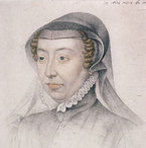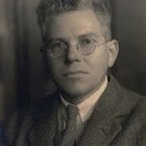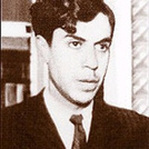|
Yesterday evening, I attended a concert which I found very interesting, and which I would like share with you. The piece I’m writing is an overview which I hope gives you a flavour of what I experienced. It is not in the same style as my usual posts, which tend to be more analytical, as I am not familiar with Prokofiev’s music, having immersed myself in the Baroque and Classical periods for so many years.
As part of artistic director and conductor Vladimir Jurowski's Prokofiev: Man of the people? season, the Royal Festival Hall hosted two rarely heard pieces of music by the Russian composer. The first piece, Egyptian Nights, was originally a “theatrical experiment...that brought together scenes from Bernard Shaw’s Caesar and Cleopatra, William Shakespeare’s Anthony and Cleopatra and the 1828 poem Cleopatra by Alexander Pushkin.” The reason for the combination of the Shaw and Shakespeare plays was explained by Prokofiev himself: “Shaw depicted Cleopatra in the bloom of her youth; and Shakespeare, at the moment of her decline.” The second piece was the world première of Levon Atovmyan’s oratorio arrangement of the music by Prokofiev to accompany Sergei Eizenshtein’s film Ivan the Terrible. Lost to the world for almost 50 years, the score of the oratorio came to light when Nelly Kravetz went to visit Atovmyan’s daughter, Svetlana Levonovna, in the House of Composers in Moscow. She gave the score to Kravetz, telling her to “Do something to prevent [my father’s] name from being forever confined to oblivion.” Atovmyan arrangement of the film music included changes to the order of the action from that in the film, minor changes to Prokofiev’s scoring, composition and libretto, and “significant alterations to the choral score”. In the first piece, Egyptian Nights, the narrative passages were performed by two very gifted actors: Simon Callow CBE, and BAFTA award winning actress Miranda Richardson. Both actors had to play multiple roles, with Callow having to play both an aging Caesar and a virile Mark Anthony. His ability to move between contrasting characters with versatility and integrity made for an excellent performance. His heavily Irish-accented fig-seller, who was to sell the fatal asp to Cleopatra, was comic genius. Richardson’s Cleopatra was an excellent developmental exploration of the changes that occurred as the young queen grew into maturity. Her girlish innocence in her scenes with Caesar at the Sphinx contrasted with the warmer, more seductive tones displayed towards the end of the piece. Musically, while slightly bitty, the score produced some wonderful moments. Prokofiev has a knack of writing beautiful music for the lower strings, particularly the viola and the double bass. It was lovely to hear one of the melodies start in the lower reaches of the cello section, only to find its culmination with the violas. In the scene with solo harp, harpist Rachel Masters produced a languid sound that was both captivating and mournful. Following this was the exquisite humming chorus, which had the hairs on the back of my neck standing up. We also received our first hearing of Baritone Andrey Breus, who would hear again later on. After the interval came the second piece, the oratorio Ivan the Terrible. The opening of the oratorio had the strings powering up and down a series of semi-quaver runs, while the brass came to the fore with Ivan’s theme. The first chorus, A Black Cloud, was well performed, and gave us an inkling of what was to come. Contralto Ewa Podles’ first outing came with the second piece, the Song of the Beaver. Here she portrayed boyarina Yevfrosinya Staritskaya, who is explaining to her son how she plans to depose Ivan, and place him on the throne instead. Podles’ dark contralto was superbly macabre, as she sang the low, chilling phrases. Her black and gold outfit was perfect for the role. The third piece of the drama was the most brilliant. Here, baritone Andrey Breus took the role of Fyodor Basmanov in the song of the Oprichiniki, the mercenaries of the Tzar. Breus’ voice took the high phrases magnificently, every inch a warrior. His strong voice never became abrasive, and his interplay with the chorus was perfect. He was in a virgin-blue top with oriental trimmings, and knee-length boots. It was a rousing, engaging piece, and as Doundou Tchil of the blog Classical Iconoclast put it: “One should feel fear and revulsion. But the music is so infectious; you're almost drawn into it, which is rather worrying. But then, that's what mobs are like.” The next two pieces, Swan and Anastasia, relate to Anastasia’s marriage to Ivan, and to her poisoning respectively, and were masterfully performed by the London Philharmonic Orchestra and the London Philharmonic Choir. In the sixth piece, Ocean-Sea, Ewa Podles returns as Ivan’s elderly nursemaid, who recounts the murder of Ivan’s mother, the regent Elena Glinskaya. Podles’ voice ebbed and flowed like the waters in this most nebulous of arias. Her final dark utterance on the words “Russian Sea” was like hearing the voice of Neptune rise from the cavernous depths of the ocean. The final two pieces, The Capture of Kazanand Magnification, both had moments of fire and glory which filled the hall with fierce energy. The use of the double bass, tuba, contra-bassoon and other bass instruments to portray the cannon at the walls of Kazan was a magnificent piece of orchestration. It was a fantastic evening, one which has opened my eyes to the music of Prokofiev, and which has inspired me to explore more of his work in the future.
0 Comments
|
Categories
All
Archives
September 2014
|
MOST VIEWED POSTS
© James Edward Hughes 2013
 RSS Feed
RSS Feed





